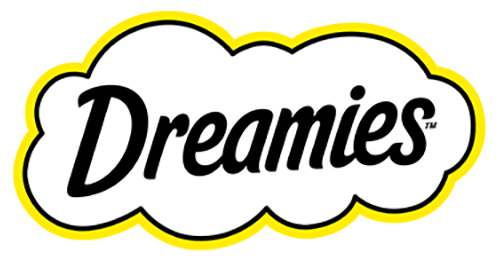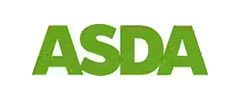Have you noticed your cat dribble before? If your cat is drooling and acting normally it shouldn’t be a cause for concern. Cats often drool when they purr and when they sleep. This happens because the muscles in their mouth become relaxed when they are content and this can create excess saliva. Not only is this perfectly fine, but it also means your cat feels safe with you! In this article, we will cover everything you need to know about cat drooling to help you recognise when it is perfectly normal and when it might be a cause for a trip to the vet. A small amount of drool now and then is not necessarily anything to worry about but if your cat is drooling a lot you should investigate the cause.
Why is my cat drooling?
If your cat is drooling but acting normally this isn't a cause for concern. You may notice that you often encounter cat dribble when your cat is relaxed, purring or kneading you and this is perfectly fine. This behaviour is linked to feelings of contentment that stem from kittenhood, which is a positive sign!
Causes of abnormal cat drooling
Why is my cat drooling excessively? Cat drooling is generally considered normal and can even be a sign of happiness when cats are purring, however, it can also be a sign of serious illness or injury. It is important to evaluate your cat’s risk. Age increases the likelihood that excessive drooling may be something to be concerned about. Environmental factors like the cat's living conditions (proximity to chemicals) and previous medical history are also key areas for you to consider.
Dental disease
If you notice that your cat is drooling frequently it could be a sign that they are in pain from dental problems like gingivitis, stomatitis, or oral lesions. Mild or moderate gum disease can cause drooling, as can broken teeth or injuries within the mouth. Look out for other telltale signs of gum disease such as bad breath, and red or bleeding gums. If you notice that your cat has changed their eating behaviours, has started shying away from people touching their head, is being quieter in themselves or is pawing their face a lot, it could point to dental issues. If you suspect your cat is suffering from dental problems you should arrange to see your vet. Looking after your cat’s dental hygiene and teeth can prevent cat drooling and pain from happening in the first place. A complete and well-balanced diet, brushing their teeth and dental treats can help prevent dental issues.
Upper respiratory infections
Upper respiratory infections can contribute to excess drooling in cats, make sure to monitor your pet for other signs such as sneezing, wheezing or nasal discharge if you suspect this is the cause. Making sure your cat has their annual flu vaccinations may reduce the severity of upper respiratory infections.
Nausea and gastrointestinal issues
Drooling can also be a sign of nausea and gastrointestinal disease in cats, which can be caused by eating inappropriate food. Drooling may be accompanied by other signs like vomiting or a reduced appetite in cats experiencing nausea. Monitor your cat and arrange a vet visit if their signs do not improve within 24 hours. Cats may also experience excessive drooling if an object like a bone, stick or toy has become lodged in their mouth. They may also paw at their mouth to make you aware of the issue. It is time to arrange a vet visit as soon as possible if you find something stuck in their mouth or throat that won't come out. Check the inside of the cat's mouth for sore, red or ulcerated patches - these can occur if the cat has been in contact with a chemical that's caused a reaction.
Stress and fear
Stress or fear can result in cats drooling a lot, this is due to the stress hormones in their body causing excess saliva. Cat drooling can also happen when they are overstimulated as this releases endorphins. Fear-related drooling can be triggered by environmental changes, car rides, vet visits, or loud events. Monitor your cat’s stress levels and make changes to avoid any obvious triggers if possible.
Trauma and injuries
Cats can be sneaky and sometimes end up nibbling on things they shouldn’t like electrical wires, this can also cause mouth trauma or injuries leading to excess drooling. In more serious cases a broken jaw could also be the culprit. Look out for signs of injury such as loss of appetite, issues eating food, rapid breathing, being withdrawn, meowing for attention or pawing at the mouth. It is time to arrange a vet visit as soon as possible if you suspect they have suffered trauma to the mouth.
Heat stress
Has it been very hot recently? Excessive drooling could be a sign of heatstroke in cats, other signs include, rapid breathing, panting, lethargy, and increased heart rate. Your cat may also have red gums or their tongue could be red, so keep an eye out for signs of heat stress. Make sure your pet has access to a cool area and lots of water during hot weather. Take them to the vet for a check-up if you are concerned.

When to see a vet
Usually when a cat is drooling, they are acting normally. Drooling should not be a concern unless it happens for more than a few minutes at a time and frequently. If you suspect that your cat’s drooling is a sign of a more serious, underlying issue then you must talk to your vet as soon as possible to ensure your pet is well. Excessive drooling caused by underlying health issues will be accompanied by other signs such as loss of appetite, bad breath, vomiting, behavioural changes or lethargy.
Preventative care and treatment options
Preventative care is the best measure for all your cat's health concerns, including when your cat is drooling a lot. This means scheduling regular vet check-ups to catch problems before they start to cause serious health issues.
Help, my cat is drooling but acting normally, what should I do?
- Cats are sensitive creatures and they are also creatures of habit. Maintaining a routine for playtime and feeding can help your pet feel at home and reduce stress that may contribute to excess drooling.
- Maintaining a balanced and nutritional diet is also advised. Cats may begin drooling while happily anticipating their dinner, so feeding them at the same time every day can help avoid this type of drooling.
- Cats may become dehydrated after too much drooling so make sure they have access to lots of fresh water. A cat water fountain is a great idea.
- Has your cat had some catnip recently? Catnip is also a common cause of drooling in cats, it happens because catnip helps cats release ‘happy hormones' which is why cats can experience a state of euphoria after ingesting it from treats or smelling it!
- Cats can also become very stressed when they’re bored so you should always ensure they are physically and mentally stimulated, you can do this by giving them access to various toys. Dotting cat trees, scratching posts and having some hiding spots around your home is another great way to keep them engaged, as well as puzzle games with their favourite cat treats inside.
If you suspect that your cat’s drooling is a sign of a more serious, underlying issue then you must talk to your vet as soon as possible to ensure your pet is well.
Why is my cat drooling? - FAQ
Why is my cat all of a sudden drooling?
There are several reasons why your cat is drooling, one of the most common is because they are content. When cats are happy their mouth becomes so relaxed they may drool a little. This can happen when they are purring, sleeping or kneading you and it lets you know they are in a great mood and feel safe! Drooling should not be a concern unless it happens for more than a few minutes at a time and frequently. If you suspect that your cat’s drooling is a sign of a more serious, underlying issue then you must talk to your vet as soon as possible to ensure your pet is well.
Why is my cat's mouth dripping water?
Don’t panic, the water coming from your cat’s mouth is cat dribble or drool. If you notice your cat is drooling when you pet them because they are very happy and content, this happens because their mouth becomes more relaxed. Cats generally drool when they are purring, kneading or when they’re sitting in your lap while you’re petting them! Drooling should not be a concern unless it happens for more than a few minutes at a time, frequently or accompanied by other signs. If you suspect that your cat’s drooling is a sign of something more serious, such as an injury or dental problem, then you must talk to your vet as soon as possible to ensure your pet is healthy.
Do cats drool when they are sick?
Yes, although drooling is usually not a cause for concern, cats also drool when they are sick. Underlying issues that may cause excess drooling as a sign include dental problems, poisoning, upper respiratory infections, nausea, stuck objects, trauma and injury. If you suspect that your cat’s drooling is a sign of something more serious, then we advise that you talk to your vet as soon as possible to ensure your pet is healthy.
What virus causes cats to drool?
Upper respiratory infections can contribute to excess drooling in cats. Make sure to monitor your cat for other signs such as sneezing, wheezing or nasal discharge if you suspect this is the cause. Your cat may become dehydrated so remember to provide lots of fresh water for your cat. Making sure that your cat has their annual flu vaccinations may reduce the severity of upper respiratory infections.












